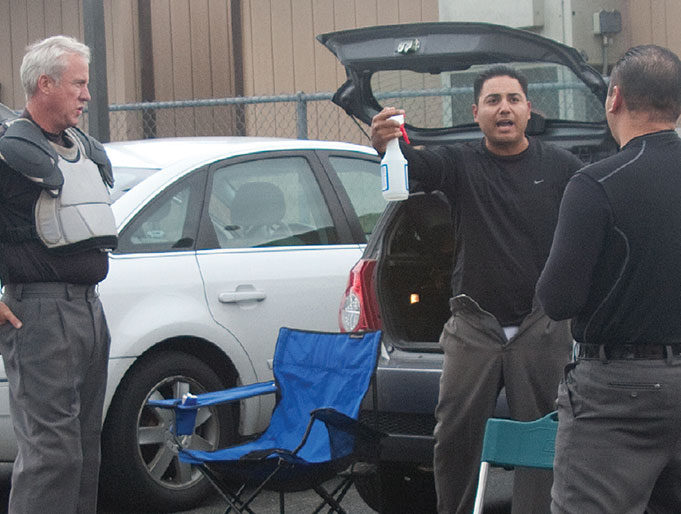It was a tough game and not much went as planned. Now it’s time to break down where it all went wrong. It‘s a stressful situation and one that many people avoid. Whether as a sideline observer or as one of the officials who worked the game, I learned early on the most comfortable way to start productive postgame discussions is with open-ended questions.
Some examples:
“How did you feel out there?”
“What did you think about (insert tough or unusual call)?”
“How would you describe the tenor of that game?”
“Tell me what you saw on the play on which (e.g. the card was issued, player ejected, etc.)?”
Those questions confirm the mantra we are all in this together, we need to work as a team to figure out what went wrong and how it can be fixed or avoided next time.
I am often surprised and enlightened by the answers. If I put myself in the other official’s shoes, I can understand why he or she made the call he or she did. With that input, I can provide additional information that may have changed their response. Many times, an observer may not have the best view of the play, or does not have information the official had. But the observer does have a wider view and is taking in the whole field, the coaches, the clock and other facets of the game that can be a challenge for officials to notice in the heat of the moment.
As a partner, I don’t think postgame feedback is effective if a quality pregame did not take place. It is so important to pregame to establish rapport, develop a game plan and open the lines of communication. Without a pregame, the postgame can break down quickly because it is possible the crew was never on the same page to begin with.
Good officials set goals and work on different things. When you ask partners in the pregame what they are working on, you may see something during the game that will help them with one of those goals. They’ll want to hear it so there is no need to be apprehensive about providing it. Whether as a partner or an observer, I can use an open approach keeping in mind I had a completely different view of the play than he or she did.
I think that it is always helpful to start with what an official did correctly. Such was the case after a match I worked last season. “I really liked the card you gave to the coach,” I said. “I think that it was needed. But from across the field, you looked pretty angry doing it.” My partner acknowledged she had waited until she was that upset to issue the card. That led to a productive conversation regarding game management.
I find that officials are generally self-aware. Sometimes they start the conversation with, “Wow, that was not my best effort!” That is such a helpful point of information because as the evaluator you don’t need to waste time convincing them of what went wrong. They already have a good idea; now it’s time to talk about solutions.
However, there are officials who are convinced they called a great game, even though there are people in the parking lot with torches, partners have already left the site and they are as happy as a four-year-old celebrating a birthday. I still start with open-ended questions, but when I get answers that illustrate that we may not have been at the same game, I will start to guide them more specifically.
There are so many teachable moments in a game. When dealing with a happy-but-oblivious official, I try to pick out a few to focus on. If they really are having a hard time believing me and I think we can get some game film, I will offer to walk through it with them, so we can both see the video evidence.
Difficult postgames are so important because we all know that the rules we know the best are the ones we blew in a big moment. A tough game absolutely needs to be processed because failing to do that can start a downward spiral on the season. Mistakes get made, so learn from them, correct them and move on. The postgame is the first step to that healthy cycle of professional growth and development.
What's Your Call? Leave a Comment:
Note: This article is archival in nature. Rules, interpretations, mechanics, philosophies and other information may or may not be correct for the current year.
This article is the copyright of ©Referee Enterprises, Inc., and may not be republished in whole or in part online, in print or in any capacity without expressed written permission from Referee. The article is made available for educational use by individuals.


















